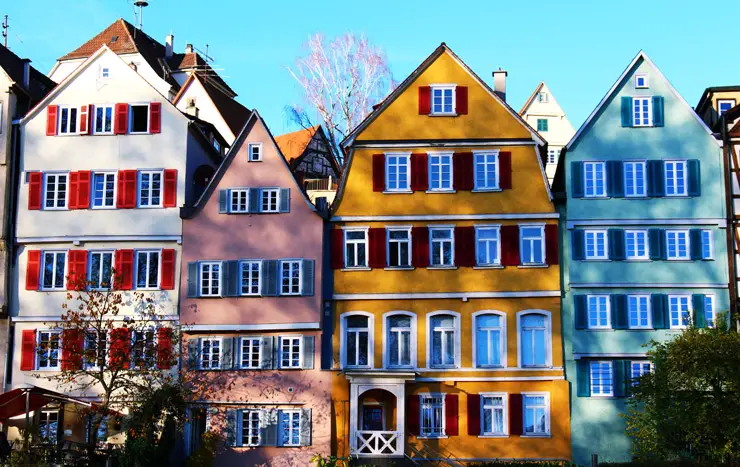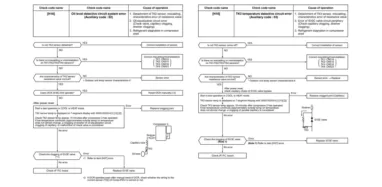If you are moving to Germany, especially from a place like the United States where air conditioning is nearly considered as an essential commodity, the first immediate reality that would hit you hard and miss about your home would be your cooling system: this is because, unlike the United States, air conditioner in Germany is a rare commodity.
The air conditioner is so rare in Germany that only about 1% of homeowners have it installed, so don’t be surprised if on getting to the country for the first time you end up searching, “Does Germany have air conditioners?” “Where can I get a place with an air conditioner in Germany”? “Will I die if I stay in a place without an air conditioner for a long? Luckily, I have answers to those questions in this article, so read on.
Is air conditioning illegal in Germany?

No, air conditioning is not illegal in Germany. Going by the rate at which air conditioner is scarce in Germany, it would be rational to think the situation is like that because it is illegal to have an air conditioner, but that’s not true.
In fact, you can set up a factory for manufacturing ac units, no one, not even the government will question your decision. However, you must make adequate arrangements for exportation because most of your products will most definitely be sold abroad.
Do houses in Germany have air conditioners?

Yes, some houses in Germany have air conditioners. Air conditioners may be rare, however, few houses most especially commercial buildings and offices have them installed.
Although, the weather in Germany is cold most of the time, but at some time during summer they experience intense heat waves which is why some households may consider installing the unit. But regardless, a huge amount of the population does not use air conditioners at all.
Do hotels in Germany have air conditioners?

Yes, hotels do have air conditioners in Germany. Do not get your hope so high because I said hotels have air conditioners because you might be disappointed.
Just like many homes, most hotels especially the local ones do not consider air conditioners as important equipment because they believe most of their customers are used to living without an air conditioner. However, you can find air conditioners in international or 5 stars rated hotels.
Why is air conditioning not popular in Germany?
Different people in Germany have different reasons why they don’t have air conditioners installed, but non has to do with sanctions or law related.
It is all a matter of choices. Germans don’t use air conditioners for reasons like the need to be environmentally friendly, prevailing weather conditions, waste of energy, some even claim they are allergic to it that it makes them sick.
How to keep your house cool in Germany

Without an air conditioning system in place, homeowners in Germany have been living a healthy life for years with a standard of living that is almost at par with other powerful countries with air conditioners.
Hence, if you are taking a trip to the country, it would be beneficial to know how Germans have so far been able to keep it cool in times of hot weather. Here are a few tips.
Work out a good ventilating routine
In Germany, you must be conversant of the prevailing daily weather condition if you must stay cool. Open your window widely once you notice the temperature has dropped during the evening time. Remove hot air from the room by placing a portable fan in the window. Close the curtains and windows, then lower the Rolladens during the day.
To keep bugs and other insects from invading your house while your windows are opened, make use of fliegengitter.
Change your sleeping area
If you live in a multi-story building and your bedroom is on a higher level, it will be in your best interest to relocate downstairs during hot weather because heat is more intense at the top than it is on the ground floor.
Be conscious of your appliance usage
During hot weather in Germany, you will be doing yourself more harm than good by making use of appliances that have alternatives, especially some home equipment like oven, cloth dryer, dishwasher, and many more that are capable of generating heat. During this period, it would be better to air dry your clothes rather than make use of a cloth dryer. Likewise, you can make use of the grill instead of the oven.
How do Germans survive summer?
Summer is not usually friendly to Germans, this is because the heat during this period is usually unbeatable. Therefore, as a German, how do you survive the heat? Check below for pro heat survival tips in Germany.
- Get yourself a standard air cooler or fan.
- Drink more hot beverages to get rid of body heat.
- Consume more spicy foods because they are proven to reduce body heat during hot days.
- Protect your head from direct exposure to sunlight.
- Do not make use of the cold shower.
- Don sunscreen whether you are outside or indoor.
Why does Europe not have an air conditioner?
It is simply because during summer, unlike the united states, most countries in Europe are cooler and less humid. There is also a claim that countries with hot weather in Europe have drier air compared to the United States. And therefore, they consider air conditioners unnecessary.
Countries that don’t have an air conditioner
Apart from Germany, other countries that don’t have an air conditioner include; Samoa, Fiji, Cook island, Tonga, and Solomon island.
Does France have an air conditioner?
Yes, France has air conditioners but just as it is in Germany and some other European countries, the air conditioner is also a rare commodity.
Does Russia have an air conditioner?
Yes, Russia has an air conditioner. You can see air conditioners at homes in Russia, however, it is also a rare commodity as it is very costly. A split system air conditioner can cost up to 30000 ruble which is approximately $1000.
Air conditioning usage by countries
| Countries | Air conditioner requirement in thousand (2018) |
| Germany | 172 |
| Russia | 1283 |
| France | 585 |
| USA | 15129 |
| Canada | 460 |
| Nigeria | 480 |
| Egypt | 872 |
| Saudi Arabia | 1365 |
| Isreal | 753 |
| India | 5241 |
| Indonesia | 2339 |
| Brazil | 3100 |
| Argentina | 981 |
| Australia | 1140 |
| New Zealand | 144 |


